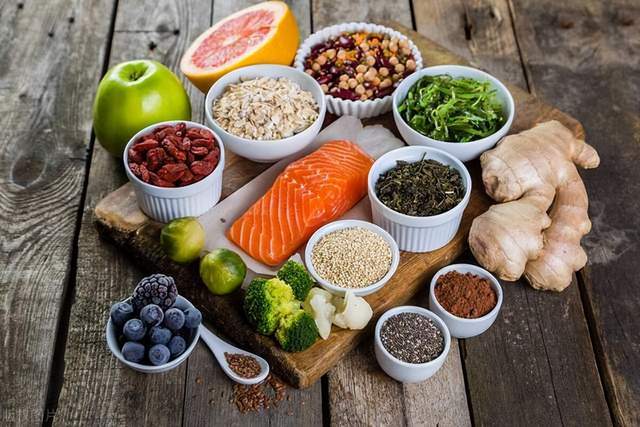In the complex world where health and disease intertwine, muscle malnutrition is a common health problem, severely affecting the quality of life of patients. It refers to the condition where muscles cannot grow and repair normally, often caused by long-term lack of exercise, malnutrition, or other diseases. To improve this situation, a proper diet is crucial. This article will delve into which foods are the source of energy for patients with muscle malnutrition, enabling readers to better understand the importance of these foods.
Protein: The Foundation of Muscles
Protein is the primary component of muscles and is essential for muscle growth and repair. Quality sources of protein include chicken breast, fish, legumes, nuts, and dairy products.
Chicken breast: Low in fat, high in protein, it is a preferred choice for fitness enthusiasts. Each 100 grams of chicken breast contains about 23 grams of protein and is easily digestible, providing a continuous source of energy for muscles.
Deep-sea fish: such as salmon, cod, and tuna, are rich in quality protein and Omega-3 fatty acids, reducing inflammation and promoting muscle recovery. Introducing 2-3 servings of deep-sea fish meals every week allows the body to benefit from the nourishment of the sea.
Nuts: nuts like walnuts, almonds, and pistachios are not only rich in protein but also in vitamins and minerals. Having a small handful of nuts every day provides long-lasting energy and comprehensive nutrition.
Carbohydrates: The Source of Energy
In addition to protein, carbohydrates are an indispensable part of Li Ming’s diet. As the main source of energy for the body, carbohydrates provide essential energy for daily activities and muscle repair.
Whole grains: such as oats, brown rice, and whole wheat bread, contain rich complex carbohydrates and dietary fiber, which help stabilize blood sugar levels and provide lasting energy. Starting the day with oatmeal or whole wheat bread for breakfast lays a solid foundation for daily activities.
Vegetables and fruits: although their main components are not carbohydrates, the sugars and dietary fiber they contain also provide energy for the body. Especially green vegetables like spinach, mustard greens, and bok choy, not only rich in vitamins and minerals but also aid in maintaining gut health and promoting nutrient absorption.
Fat: The Guardian of Health
In traditional belief, fats are often seen as the enemy of health. However, for patients with muscle malnutrition, a reasonable intake of healthy fats is equally important.
Olive oil and fish oil: rich in monounsaturated and polyunsaturated fatty acids, they help lower cholesterol levels and maintain cardiovascular health. Using olive oil in cooking instead of other fats and consuming a certain amount of fish oil weekly provides valuable fat sources.
Nuts and seeds: besides protein, nuts and seeds are rich in healthy fats. They not only provide energy but also help maintain hormone balance and cell function.
Vitamins and Minerals: Catalyzers for the Body
Vitamins and minerals are essential micronutrients for maintaining body health. For patients with muscle malnutrition, they are crucial in promoting muscle growth and repair.
Fresh fruits and vegetables: are the primary sources of vitamins and minerals. Intake of sufficient fresh fruits and vegetables daily, such as apples, bananas, oranges, and various leafy greens, provide abundant nutrients and enhance immunity.
Whole grains and legumes: in addition to carbohydrates, whole grains and legumes are rich in B vitamins and minerals like iron, magnesium, and potassium, vital for maintaining nerve function and muscle health.
Hydration: The Nectar of Life
Maintaining adequate hydration is equally important. Water not only helps maintain normal body metabolism and detoxification functions but also promotes muscle recovery and growth.
Adequate water intake: ensure to drink enough water daily and adjust the water intake based on individual needs.
For patients with muscle malnutrition, a proper diet is key to restoring muscle function and enhancing quality of life. By consuming sufficient protein, carbohydrates, healthy fats, and abundant vitamins and minerals, the body receives comprehensive nutritional support to promote muscle growth and repair. Additionally, maintaining adequate water intake is crucial.
Exploring the sources of energy for patients with muscle malnutrition, one easily discovers the intricate connection between nutrition and health. A proper diet not only helps improve health issues like muscle malnutrition but also enhances overall quality of life. Therefore, start paying attention to your dietary health now, choose nutrient-rich foods as the body’s energy source, and together welcome a healthier and brighter future.


